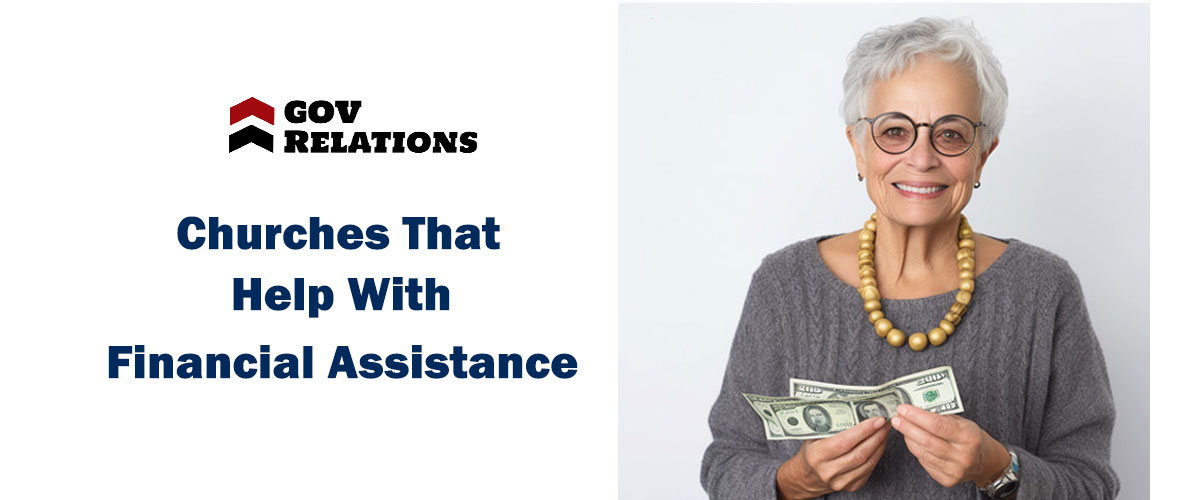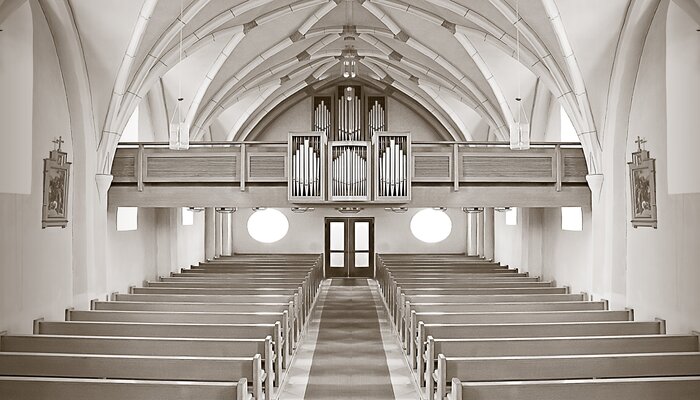Christian church charity statistics indicate that 17% of households in the U.S. donate much less to local churches than they used to give.[1]
About 10 million tithers in the US donate $50 billion yearly to churches & non-profits. 77% of those who tithe give 11%–20% of their income, far more than the traditional levy of 10%.[2]
Churches in the US received 27% of all donations in 2021 (GivingUSA); 44% of US adults are digital donors (Barna). An average congregation records a yearly budget of around $125,000.[3]
Eighty percent of churches reported receiving outside financial assistance during the pandemic said it came as a PPP loan.[4]
The cost of raising a family makes it difficult for most Americans to pay their monthly bills. Even those whose budgets are partially met each month may still be anxious about the bills they cannot control.
According to statistics, around 17% of American households give less money to their local churches than they used to.[1] Churches provide social service programs to help low-income families pay their bills, such as food, electricity, rent, and utility bills. Churches sometimes provide medical care, shelter, and other assistance to the needy.
Churches like these understand that life can sometimes throw curveballs at anyone. You can always turn to Salvation Amy or Love INC for assistance during job loss, health issues, disasters, or fire outbreaks, among other challenges that can knock you off your feet.

How Can Churches Help
Churches nationwide provide various support services to assist individuals and families in need. Below is a list of common types of assistance offered, with descriptions for each:
- Rent Assistance: Many churches, like the Episcopal Church, offer emergency funds to help cover rent payments, preventing evictions and providing stability for families in financial distress.
- Utility Bill Aid: Churches often provide financial assistance to help with utility bills, ensuring that essential services like electricity and water are maintained, especially during extreme weather conditions.
- Food Pantries: Numerous churches operate food pantries, offering free groceries to those facing food insecurity. These pantries are typically stocked with essential food items to support nutritional needs.
- Clothing Closets: Some churches have clothing closets providing free clothing for job interviews, school children, and everyday wear, helping those who cannot afford new clothing.
- Gas Vouchers: For individuals who need transportation assistance, certain churches offer gas vouchers, enabling them to travel to work, medical appointments, or other essential places.
- Counseling Services: Recognizing the importance of mental health, several churches provide counseling services, offering support for emotional and psychological well-being.
- Educational and Job Training Programs: Some churches offer educational support and job training programs, helping individuals gain new skills and improve their employment prospects.
This list represents a sample of how churches are committed to supporting their communities. By providing these essential services, they play a crucial role in offering hope and practical help to those in need.
Fast Facts
17% of households in the U.S. donate much less to local churches than they used to.
Churches That Help Pay Bills
If you need help paying your bills or are confronted with an emergency, contact the following churches that help with financial assistance. It's important to note churches' significant role in charitable giving and support within the community.
In 2021, churches in the US received 27% of all donations, according to GivingUSA.[3] This demonstrates the substantial trust and reliance placed on churches by donors. Additionally, the trend towards digital giving is on the rise, with 44% of US adults being digital donors, as reported by Barna. This shift towards online donations has made it easier for congregations to manage and allocate funds for assistance programs.
Furthermore, 80% of the churches that reported receiving outside financial assistance during the pandemic said it came as a PPP loan.[4] This budget reflects the commitment of churches to serve and assist those in need, whether it's helping with utility bills, rent, medical expenses, or other emergency needs.
Salvation Army
People of all faiths and backgrounds can find support from The Salvation Army. Their extensive social services include those for senior citizens, immigrants, and the disabled. The Salvation Army has been serving the community since 1865. Over 130 countries currently receive aid from this movement throughout the world.
You can receive financial assistance from the organization and pay your utility bills. The organization provides a wide array of services to families and individuals in every state of the United States. A major goal of the Salvation Army is to end homelessness in the Midwest, so they assist with rent, mortgage, utility bills, medication, food, clothing, and transportation.
Love INC
The mission of Love Inc. is to mobilize churches and other organizations to assist the less fortunate through faith-based initiatives. For instance, they help pay various bills for those in need.
As a result of their offices being located in the U.S. and Kenya, they receive incoming calls from families and individuals who need assistance with food, rent, utilities, clothing, car repairs, etc.
The organization's size has established a pantry and thrift store. Love Inc. partners with churches and ministries. They provide social services to struggling individuals. Call the helpline at (541) 757-8111 if you or someone in your family are experiencing a serious crisis. They will assist you in completing the Intake Form over the phone by a volunteer from their call center.
Once your request is processed, local agencies and churches in your area will help you develop a plan that meets your needs. You don't need to meet specific requirements for receiving Love Inc. services.
The Church of Jesus Christ of Latter-day Saints
The Church of Jesus Christ of Latter-day Saints, known as Mormons, gives considerable money to those in need. There are several locations where the church provides access to their "Bishop Storehouses." These areas provide food free of charge to families in need.
The LDS church has frequently stated that it will not turn away someone in need, even if they have to interview with a local authority. The LDS church also offers temporary administrations (to support the needy), and some local assemblies provide financial assistance for those needing rent or other bills.
Fast Facts
It is estimated that about 10 million tithers in the US donate $50 billion to churches & non-profits each year.
The Episcopal Church
As one of the world's most popular churches that offer financial assistance to the poor, the Episcopal Church assists with bills and rent payments. Hundreds of Episcopal parishes are spread across the country. These parishes provide emergency financial aid to lower-class families. This church also ranks as one of the best for helping you pay your bills and rent.
It operates throughout the United States and provides its services there. This charity provides financial assistance to families and individuals who are less fortunate. It becomes easier to locate them locally as they provide their services across the country.
If you need help finding your local office, check the official website or ask a local. You can also email them or post your problem on their website. In addition, you can go to their office in person and speak to their volunteers about your problem.
Their volunteers would then provide assistance based on your needs. You can get a discount on your utility bill if you fall into that category. To get help with the bills, go to the regional center of Episcopal Churches.
Also included are various programs that provide services such as free clothes, gas vouchers, and medical assistance. You would, however, be required to provide them with proof of your critical condition before applying for their services.
Catholic Charities USA
A leading charity in the nation, Catholic Charities USA assists all over the nation. More than 15 million individuals receive its services yearly from 30,000 offices worldwide. Catholic Charities USA has established food pantries and banks nationwide and helped thousands.
To help with utilities, the Catholic Churches USA runs different programs, including the Emergency Rental Assistance Program through which you can receive relief from utility bills. To receive emergency assistance, applicants must provide a current utility bill, proof of income, and a valid ID. Religion, race, creed, or socioeconomic status do not determine the availability of these services.
Individuals seeking rental assistance must provide a copy of the lease in their name, identification, and proof of income. Each aid recipient must enroll in a budgeting course. For help with rent or utility bills, contact your local Catholic Charities office.
The United Methodist Church
The United Methodist Church is renowned for its global rent assistance, aiding those facing daily challenges. With a widespread presence, they provide crucial services, including utility bill aid, temporary housing, and counseling for substance abuse.
Their financial aid for rent is based on individual needs, potentially covering full rent for eligible candidates. This church's commitment extends beyond the US, aiding needy families worldwide, although program availability depends on funding.
Lutheran Social Services
Lutheran Social Services provides rent assistance to the needy as a non-profit organization. The organization also works with the government and other nonprofit and for-profit organizations to distribute essentials like food, shelter, and bill assistance.
The company can be reached both online and offline for help. They are known for offering candidates warm hands and thoughtful hearts. There has never been a candidate who left the organization without anything. It is easy to find them since they work with governmental agencies and organizations.
Saint Vincent de Paul
The Saint Vincent de Paul Society is one of the world's largest charitable organizations. In addition to providing quality social services and financial assistance, they aim to help the poor and low-income families. With its exceptional style, this organization offers assistance for many things, including food, medicine, clothing, fuel, utilities, rent, and even transportation.
When it comes to renting assistance, churches have no limits. Any community member can take a room at any of their locations. The organization only assists those who are in financial distress.
The Jewish Federations of North America
Most Jewish Federation churches have assisted with rent and bills for years. Their work has been done in collaboration with local and national charities, and as a result, they have been able to help with food pantries, clothes, and utility bill payments.
They are mainly concerned with helping the poor and families with financial difficulties. Visit the Jewish Federation of North America website for churches that assist with utilities and rent.
Funding Charitable Programs in Churches: Donations and Grants as Key Sources

Churches fund their charitable programs through various sources, including donations from congregants, fundraising events, and grants from private foundations or government agencies. Donations, whether in tithes, offerings, or one-time contributions, are essential for maintaining the church's operations and supporting its outreach programs.
In the US, around 10 million people give $50 billion yearly to churches and non-profits. Surprisingly, 77% of these people give more than the usual 10% tithe, with some giving 11-20% or even more of their income.[2] This substantial financial commitment from congregants underscores the critical role of individual contributions in sustaining church-led charitable activities.
Funding Sources for Church Charitable Programs
Many churches rely on the generosity of their members and the wider community to fund their charitable initiatives, ranging from local food banks and clothing drives to international missions and disaster relief efforts. Grants also play a significant role in supporting church-led charitable programs, especially for larger projects or initiatives that require substantial funding.
Churches can apply for grants from private foundations, corporations, or government agencies that share their mission of helping those in need. These grants may be designated for specific purposes, such as combating homelessness, providing educational resources, or addressing health disparities. By leveraging donations and grants, churches can expand their reach and impact, providing vital assistance to vulnerable individuals and communities locally and globally.
Fast Facts
In the aftermath of the pandemic, 80% of churches reported receiving financial assistance from outside sources, mainly PPP loans.
Your Guide to Seeking Church Assistance: A Step-by-Step Checklist
If you're considering seeking financial assistance from a church, follow this straightforward checklist to ensure you're prepared and know what to expect:
- Identify the Assistance You Need: Determine whether you need help with rent, utilities, food, clothing, or other services.
- Research Local Churches and Programs: Look for churches in your area that offer the type of assistance you need. Websites, community boards, or local directories can be good resources.
- Gather Necessary Documentation: Prepare essential documents such as identification (ID, driver's license), proof of income (pay stubs, benefit statements), and any relevant bills or notices (rental agreement, utility bills).
- Contact the Church: Contact the church by phone, email, or in person. Some churches may have specific contact persons for assistance programs.
- Understand the Application Process: Inquire about the application process. Some churches might require filling out a form, while others may conduct an interview.
- Attend a Meeting or Interview: If required, attend a meeting or interview with a church representative to discuss your situation and needs.
- Follow-up: After applying, follow up if you haven’t heard back within a reasonable time frame.
- Utilize Additional Resources: Many churches offer counseling, job assistance, and other support services. Don’t hesitate to ask about these additional resources.
Remember, each church may have its unique process and requirements, so getting specific information from the church you're applying to is important. This checklist is a general guide to help you start on the right foot.
Impactful Stories: How Churches Changed Lives
Churches across the nation not only provide financial assistance but also bring hope and change to many lives. Here are a few stories that illustrate the profound impact of their help:
- A Single Mother's Journey to Stability: Sarah, a single mother of two, struggled to make ends meet after losing her job. The local Episcopal Church stepped in, providing rent assistance for two months and connecting her with a job training program. Today, Sarah has a stable job and can provide for her family, thanks to the church's timely intervention.
- An Elderly Couple's Relief from Utility Bills: Mr. and Mrs. Johnson, both in their 70s, were facing the harsh winter with the fear of having their heating turned off due to unpaid bills. A nearby church's utility bill aid program helped them cover the outstanding bills, ensuring they stayed warm and safe during the cold months.
- A Student's Path to Education: Mark, a high school student from a low-income family, dreamed of attending college but lacked the resources. A local church gave him a scholarship and mentorship, paving the way for his higher education. Mark is now the first in his family to attend college.
- Restoring Hope for a Homeless Individual: John found refuge and support at a church shelter after losing his home. They provided him with temporary housing and assisted with job placement. John is now employed and saving up for his own place.
Frequently Asked Questions
Churches offer financial assistance through programs such as emergency funds, food pantries, clothing drives, and help with utility bills or rent for individuals and families facing financial difficulties.
Eligibility varies but generally includes individuals and families in financial crisis, low-income households, or those experiencing temporary hardship. Churches may have specific guidelines or requirements to determine eligibility.
Search online or contact local churches, community centers, or social services agencies to inquire about available financial assistance programs.
Some churches may prioritize their members, but many churches assist anyone in need, regardless of their religious affiliation or membership status.
Yes, national organizations such as Catholic Charities, The Salvation Army, and St. Vincent de Paul Society offer financial assistance and other support services to individuals and families in need across the US.
Are you interested in learning more about different grants and programs to help you with your living situation? Check out the rest of Gov Relations’ blog section today!

- "45 Shocking Statistics on Church Giving & Tithing." Vanco Payments, www.vancopayments.com/egiving/church-giving-statistics-tithing. Accessed 20 Nov. 2023.
- "Church And Religious Charitable Giving Statistics." Nonprofits Source, nonprofitssource.com/online-giving-statistics/church-giving. Accessed 20 Nov. 2023.
- "The State of Church Giving: Trends and Statistics [2023]." ChurchTrac Blog, www.churchtrac.com/articles/the-state-of-church-giving. Accessed 20 Nov. 2023.
- "Billions in Federal Aid Helped Christian Orgs Survive the Pandemic." Christianity Today, www.christianitytoday.com/news/2023/october/covid-study-ppp-loans-cares-act-churches.html. Accessed 20 Nov. 2023.



